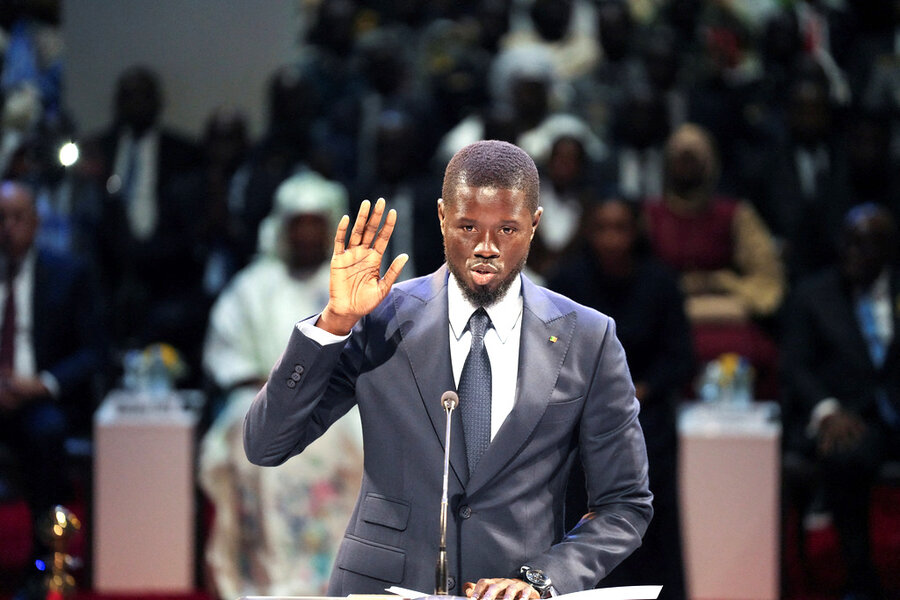West Africa’s model of ballots over bullets
Loading...
In early April, the military-run regime in the West African country of Mali banned all political activity. The reason given? For the sake of “public order.” Yet the timing suggests another factor. In neighboring Senegal just the month before, citizens voted out an incumbent president after his unlawful attempt to stay in office. This peaceful transfer of power through democracy did not go unnoticed in a region overrun in recent years by military coups and violent jihadism.
In Mali and neighboring states, militaries have seized power and turned to such patrons as China, Russia, and Iran to help them fend off growing popular discontent. “That is why Senegal is so important,” said John Kayode Fayemi, a visiting professor at King’s College London and former governor of the Nigerian state of Ekiti, during a webinar by Africa Confidential.
Since 2021, six countries along the southern edge of the Sahara Desert known as the Sahel have fallen under military rule. For a while the rebellious officers won hearts with promises of greater security, corruption reform, and eventual elections. Those promises weren’t kept. Extremist violence has spread, curtailing the movement of goods and people. Trade and food production have fallen sharply.
Those challenges coincide with strategic realignments. Once a key partner with the West in countering terrorism, Niger expelled French troops last July and last month broke its security pact with the United States. Encouraged by Moscow, it has also left the regional trade and military bloc along with Mali and Burkina Faso.
The new government in Senegal has kindled new hope among citizens and civil society groups across the region. Through peaceful protest and judicial independence, the Senegalese people and their institutions thwarted antidemocratic moves by then-President Macky Sall to stay in power. Jailed opposition leaders were released. Voter participation soared for the election.
At his inauguration on April 2, new president Bassirou Diomaye Faye pledged “to govern with humility and transparency, and to fight corruption at all levels.” His election may reset the balance of foreign influence. Mr. Faye hosted European Council President Charles Michel this week for talks on trade, fisheries, and economic development. “We share a common ambition ... based on two key principles: respect and trust,” Mr. Michel said.
Elsewhere in the region, from Guinea to Cameroon, people are taking note. “Senegal has given more power and solid arguments to pro-democracy activists in ... the rest of West Africa to say there are no other ways to follow but the democratic way for stability and development in our countries,” Ibrahima Diallo, a human rights activist in Guinea, told the Voice of America.
Mr. Faye’s victory, the United States Institute of Peace noted, “signals that young leaders can win power through ballot boxes and not through bullets.” No wonder Mali’s generals are worried.







